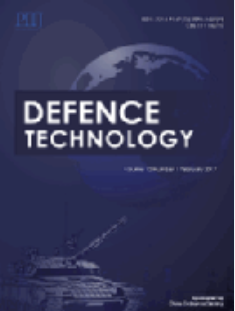考虑锚固概率和空中加油的舰载机队降落调度
IF 5.9
Q1 ENGINEERING, MULTIDISCIPLINARY
引用次数: 0
摘要
回收是舰载机的关键保障环节,合理的降落调度是舰载机安全快速降落的重要保障。目前,对该课题的研究较少,且大多忽略了潜在的影响因素,使得相应的配套效率存疑。本文研究了考虑锚固和空中加油影响的舰载机着陆调度问题。在分析涉及上述因素的恢复模式的基础上,首先描述了两类主要约束,即燃料约束和尾迹间隔约束。然后,以着陆顺序为决策变量,建立了具有复合目标函数的组合优化模型。针对该问题的高效求解,设计了一种集成多个进化算子的改进萤火虫算法。此外,引入了动态重规划机制,以应对特殊情况(如螺栓和燃料短缺),设计的算法效率高,可以在秒内在线调整调度。最后,进行了燃油充足和燃油不足情况下的数值模拟,强调了在规划过程中考虑螺栓连接和空中加油的必要性。仿真结果表明,较高的锚固概率以及燃油短缺导致的额外空中加油操作将导致较长的恢复完成时间。同时,由于改进算法具有较强的寻优能力和求解效率,可以在毫秒级内生成自适应调度以应对特殊情况,显著提高了恢复过程的安全性和效率。动画可在bilibili.com/video/BV1QprKY2EwD上访问。本文章由计算机程序翻译,如有差异,请以英文原文为准。
Landing scheduling for carrier aircraft fleet considering bolting probability and aerial refueling
Recovery is a crucial supporting process for carrier aircraft, where a reasonable landing scheduling is expected to guide the fleet landing safely and quickly. Currently, there is little research on this topic, and most of it neglects potential influence factors, leaving the corresponding supporting efficiency questionable. In this paper, we study the landing scheduling problem for carrier aircraft considering the effects of bolting and aerial refueling. Based on the analysis of recovery mode involving the above factors, two types of primary constraints (i.e., fuel constraint and wake interval constraint) are first described. Then, taking the landing sequencing as decision variables, a combinatorial optimization model with a compound objective function is formulated. Aiming at an efficient solution, an improved firefly algorithm is designed by integrating multiple evolutionary operators. In addition, a dynamic replanning mechanism is introduced to deal with special situations (i.e., the occurrence of bolting and fuel shortage), where the high efficiency of the designed algorithm facilitates the online scheduling adjustment within seconds. Finally, numerical simulations with sufficient and insufficient fuel cases are both carried out, highlighting the necessity to consider bolting and aerial refueling during the planning procedure. Simulation results reveal that a higher bolting probability, as well as extra aerial refueling operations caused by fuel shortage, will lead to longer recovery complete time. Meanwhile, due to the strong optimum-seeking capability and solution efficiency of the improved algorithm, adaptive scheduling can be generated within milliseconds to deal with special situations, significantly improving the safety and efficiency of the recovery process. An animation is accessible at bilibili.com/video/BV1QprKY2EwD.
求助全文
通过发布文献求助,成功后即可免费获取论文全文。
去求助
来源期刊

Defence Technology(防务技术)
Mechanical Engineering, Control and Systems Engineering, Industrial and Manufacturing Engineering
CiteScore
8.70
自引率
0.00%
发文量
728
审稿时长
25 days
期刊介绍:
Defence Technology, a peer reviewed journal, is published monthly and aims to become the best international academic exchange platform for the research related to defence technology. It publishes original research papers having direct bearing on defence, with a balanced coverage on analytical, experimental, numerical simulation and applied investigations. It covers various disciplines of science, technology and engineering.
 求助内容:
求助内容: 应助结果提醒方式:
应助结果提醒方式:


